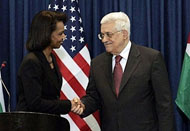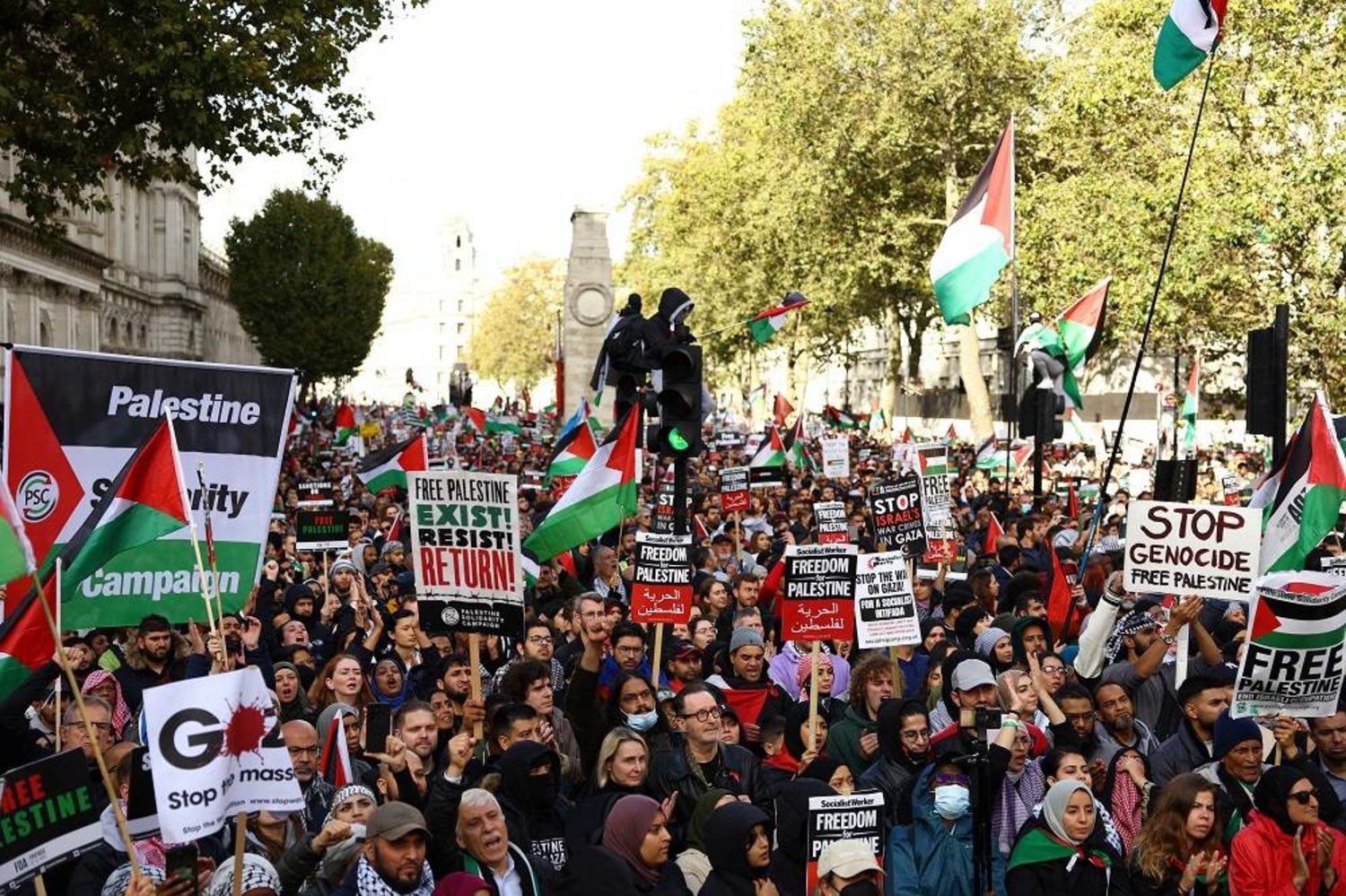On the five-year anniversary of the US-brokered roadmap for peace, there is not much to celebrate. According to plan, an interim Palestinian state should have been established and a final status agreement negotiated by now. Instead, like so many other agreements before it, the once-deemed optimistic and viable plan has traveled southward, circling the drain.
It is no wonder, given that the United States is the “mastermind’ behind it. Any sensible onlooker will realize that the US, no matter how good intentioned it claims to be, can never be an honest and objective broker as long as it remains such a staunch ally of Israel.
The roadmap was presented to the Palestinian Authority and Israel on April 30, 2003 by the United States in cooperation with the Quartet Committee. The goal-driven plan full of timelines and benchmarks required both sides to fulfill certain requirements as part of the first phase of the three phase plan. Five years later, the two parties are still squabbling over the obligations of phase one, each side accusing the other of breaching the agreement and shirking their responsibilities. In short, the Palestinians were required to halt violence and “terrorism” against Israelis everywhere while the Israelis were to freeze all settlement activity, retreat to positions prior to September 28, 2000 and take measures to improve the Palestinians’ humanitarian situation.
To understand the reason for the roadmap’s failure, one must understand its inherent faults. All Israeli settlements, built on Palestinian land occupied in the 1967 war are deemed illegal according to international law, regardless of whether they are sprawling colonies spread out over thousands of dunams of expropriated land or a few mobile homes inhabited by diehard settlers camped out on an isolated hilltop just around the corner of an unwelcoming Palestinian village. The fact that the Americans completely disregard this fact and ask for a “freeze” on settlement building instead of the dismantling of existing settlements offers a dangerous premise for the creation of an Israeli altered arrangement hardly agreeable to Palestinian interests.
This became apparent early on in the game. One year after the roadmap was introduced, US President George W. Bush outlined his endorsement of major settlement blocs in the West Bank, blocs Israel has adamantly insisted it would never relinquish in a final agreement. The letter, sent to then-Israeli Prime Minister Ariel Sharon (known as the ‘father of the settlement movement”) read:
“In light of new realities on the ground, including already existing major Israeli population centers, it is unrealistic that the outcome of final status negotiations will be a full and complete return to the armistice lines of 1949, and all previous efforts to negotiate a two-state solution have reached the same conclusion. It is realistic to expect that any final status agreement will only be achieved on the basis of mutually agreed changes that reflect these realities..."
With such an explicit endorsement, Palestinians were already several steps behind at the start of negotiations. Not only did Israel not freeze settlement activity, it continued to expand existing settlements (claiming the tenders had already been allocated years earlier) and accelerated construction in settlements around Jerusalem. This particularly tweaked the ire of Palestinian negotiators, who claimed Israel was openly violating its roadmap obligations. Israel, in its incessant search for loopholes, insisted Jerusalem was never part of the deal, claiming the city is Israel’s eternal capital. Again, international law disagrees, deeming east Jerusalem, captured in the 1967 war as occupied territory while the international community has never officially recognized Israel’s unilateral annexation of this predominantly Arab-populated sector of Jerusalem.
In this regard, the United States once again fell short of fulfilling its role as honest broker. As Israel pushed on with its settlement construction in east Jerusalem, creating more and more facts on the ground that would be harder to reverse once a final settlement was forged, the US offered no more than a slight verbal slap on the wrist.
Even where the Palestinian obligations are concerned, the lopsidedness is obvious. In the first phase, Palestinians were to reign in “terrorist” groups and halt the attacks on Israelis. While Israel has allowed a limited deployment of Palestinian policemen in the Nablus, Jenin and Ramallah areas predominantly for this purpose, Israel continues to retain the right to invade, arrest or kill any Palestinian it deems a threat, irrespective of Palestinian security efforts. The Gaza Strip, which Israel officially withdrew from in 2005, has been under constant Israeli bombardment and siege ever since. Not only does this undermine Palestinian security efforts, it hacks away at the Palestinians’ confidence in their own security services because of Israel’s constant incursions into their areas.
If nothing else, phase one of the roadmap called on Israel to “take measures to improve the humanitarian situation for the Palestinians.” One only has to look at the dire situation in the Gaza Strip, the 600 checkpoints severing West Bank areas and the offensive West Bank separation wall that dissects and isolates Palestinians from each other and their own land to realize that this clause has been the most disregarded of them all.
It is no surprise then that US Secretary of State Condoleezza Rice has called on the Palestinians and Israelis to publish a memorandum of understanding on the progress of their final status negotiations before President Bush arrives in Israel next week for Israel’s 60th anniversary independence celebrations. It should be mentioned that since phase one of the roadmap was not implemented on time, the parties have been striving to fulfill the obligations of phase one and three concomitantly.
The US has gone from optimistic architect of the roadmap, which was to ultimately result in a final agreement and an end to the conflict, to a “vision of a two-state solution”, then to an agreement by the end of 2008 and now finally to a meager memorandum of understanding, which by the way, neither side is happy about.
These half-baked efforts could only fail. The United States does not have Palestinian national interests at heart, only Israel’s security. That is why a plan that does not address the root of the problem, which is the illegal Israeli occupation of Palestinian land, will never bear fruit, only endless frustrations and false promises.
Joharah Baker is a Writer for the Media and Information Programme at the Palestinian Initiative for the Promotion of Global Dialogue and Democracy (MIFTAH). She can be contacted at mip@miftah.org.










